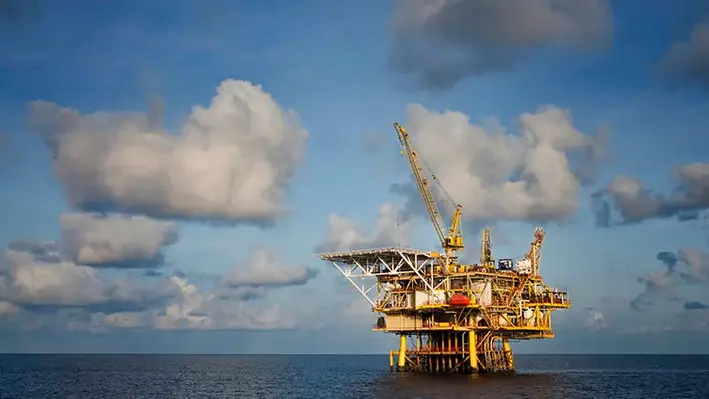
 TechnipFMC was awarded a substantial contract by Shell Nigeria Exploration and Production Company Limited to supply Subsea 2.0 production systems for the Bonga North development in Nigeria.
TechnipFMC was awarded a substantial contract by Shell Nigeria Exploration and Production Company Limited to supply Subsea 2.0 production systems for the Bonga North development in Nigeria.
The contract covered the design and manufacture of subsea tree systems, manifolds, jumpers, controls, and services, marking a significant step in advancing deepwater technology in the region.
Jonathan Landes, President, Subsea at TechnipFMC, commented, “Shell was the first to adopt our Subsea 2.0® configure-to-order solution, and continues to deploy it across multiple basins—underscoring its commitment to the technology globally. This award further positions us for future deepwater opportunities in the region.”
For TechnipFMC, a “substantial” contract is between US$250 million and US$500 million. This award was included in inbound orders in the fourth quarter of 2024. The contract highlights TechnipFMC's growing footprint in the subsea market and its strategic partnership with Shell.
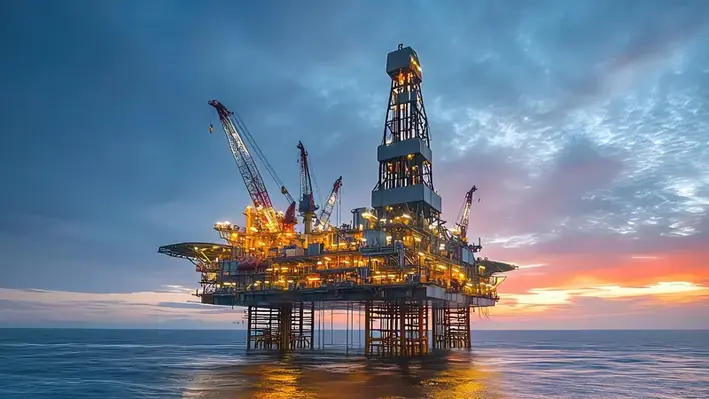
 On January 15, 2025, Chevron has announced that it did not find commercial hydrocarbon reserves in its exploration well, Kapana 1X, located in Namibia’s Orange Basin within the PEL90 block.
On January 15, 2025, Chevron has announced that it did not find commercial hydrocarbon reserves in its exploration well, Kapana 1X, located in Namibia’s Orange Basin within the PEL90 block.
Despite the absence of viable reserves, the company emphasised that the well provided valuable geological data, enhancing its understanding of the basin. Chevron indicated that it plans to continue exploring Namibia in the future, as the country remains a key area of interest for oil producers.
Namibia has recently become a hotbed for offshore oil discoveries, with several large-scale finds making headlines as some of the biggest of the century. However, not all exploration efforts have been successful. Last week, Shell revealed a US$400 million write-down on an offshore discovery in Namibia, deeming it commercially unviable.
In a separate development, Namibia’s national oil company announced in April that it had entered into a deal with Chevron, granting the US company an 80% operating working interest in an offshore block in the Walvis Basin, marking a new phase in Chevron’s involvement in the country’s energy sector.
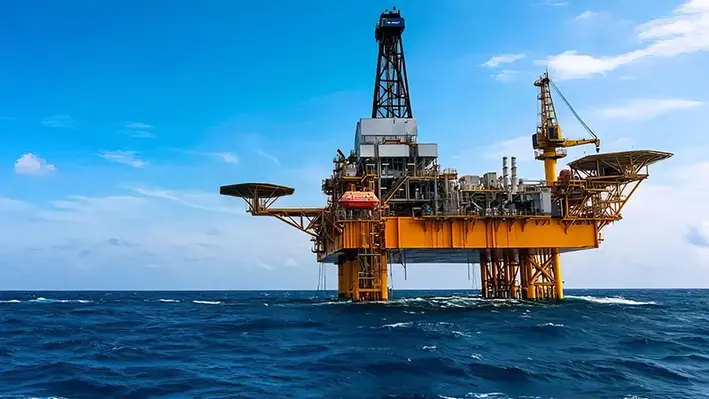

Shell Nigeria Exploration and Production Company Limited (SNEPCo), a subsidiary of Shell plc, has reached a final investment decision (FID) for the Bonga North deep-water project off Nigeria’s coast.
This subsea tie-back will connect to the Shell-operated Bonga Floating Production Storage and Offloading (FPSO) facility, where Shell holds a 55% interest.
The Bonga North project encompasses drilling and starting up 16 wells—split equally between production and water injection wells—alongside upgrades to the Bonga Main FPSO and new subsea hardware installations. The initiative aims to sustain production at the Bonga facility, with recoverable resources estimated at over 300 million barrels of oil equivalent (boe). Peak production is expected to reach 110,000 barrels of oil per day, with first oil anticipated by the decade's end.
Zoë Yujnovich, Shell’s Integrated Gas and Upstream Director, described the project as a significant investment contributing to stable liquids production and reinforcing Shell’s Upstream portfolio. Bonga North’s development aligns with Shell’s strategy to drive cash generation through its Integrated Gas and Upstream business into the next decade.
SNEPCo operates Bonga North in partnership with Esso Exploration and Production Nigeria Ltd. (20%), Nigerian Agip Exploration Ltd. (12.5%), and TotalEnergies Exploration and Production Nigeria Ltd. (12.5%), on behalf of the Nigerian National Petroleum Company Limited (NNPC). Situated in OML 118, Bonga is a deep-water field with production beginning in 2005. It achieved its one-billionth barrel milestone in 2023, and the FPSO has a production capacity of 225,000 barrels of oil daily.
Bonga North’s recoverable volumes exceed 300 million boe, classified as proven and probable (2P) under the Society of Petroleum Engineers’ standards. The project is also expected to surpass Shell’s hurdle rate for its Upstream business, leveraging near-field opportunities, technical expertise, and simplified, replicable operational models.
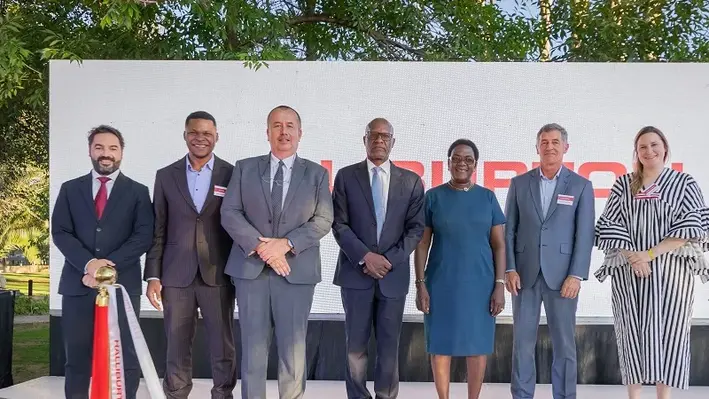

Halliburton, a leading provider of products and services to the energy industry, has announced that it will open new facilities in Namibia to support the country’s in-country operations.
The facilities are located across the country, representing a combined footprint of approximately 20,000 sq m. The Windhoek office will handle support services; a Walvis Bay site will focus on cementing and drilling fluids services and warehousing; Swakopmund will house sperry drilling, well completions, testing & subsea, and wirelines & perforating services; while Lüderitz will support cementing and wirelines operations.
Up to 200 Namibians are expected to be employed at the facilities, helping to foster local expertise in relevant technologies and contribute to the country’s economy.
“These new facilities allow us to operate close to our customers, collaborate in real time, and deliver the advanced technologies and services that maximise asset value,” remarked Antoine Berel, Vice President, Halliburton Sub-Saharan Africa (South). “We are proud to support Namibia’s oil and gas industry, contribute to the economic success of the country, and create opportunities for local people.”
Halliburton has indicated that the announcement is a demonstration of the importance of the country’s growing oil and gas sector, with the new facilities dedicated to supporting this growth while strengthening the company’s regional presence.
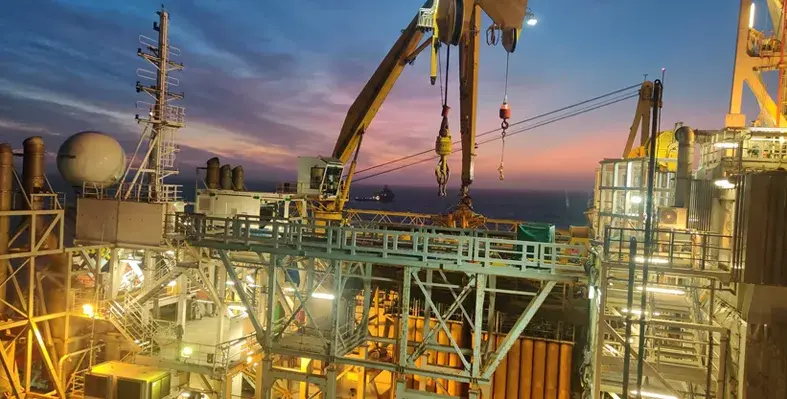
 Island Drilling Company has announced the successful completion of its recent contract with Tullow Oil.
Island Drilling Company has announced the successful completion of its recent contract with Tullow Oil.
The operations, conducted in Mauritania over a period of three months, were carried out in water depths ranging from 208 meters to 1200 meters using dynamic positioning (DP) alone.
Throughout the project, all health, safety, and environmental (HSE) standards, and key performance indicators (KPIs) were achieved. The plug and abandonment (P&A) operations were completed within the planned timeframe and under budget, reflecting the efficiency and effectiveness of the collaboration.
The feat was achieved through the company's 'one team' approach by excellent cooperation between its offshore and onshore segments.
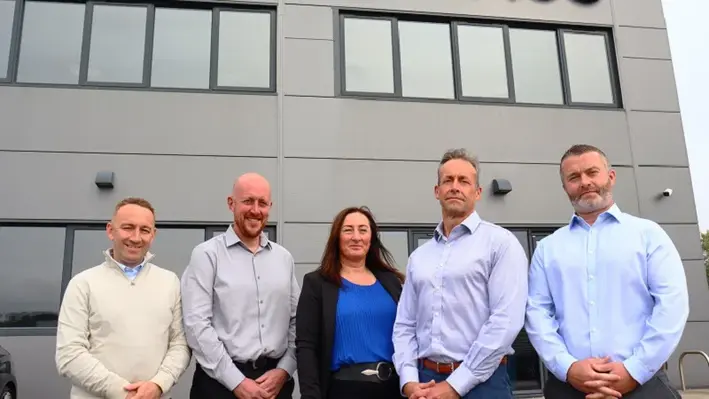

Oilenco Ltd, a leading provider of specialised well intervention solutions and services, has announced a series of promotions and new roles to its top team as it seeks to expand its global reach and begin the next phase of its journey.
One of the primary changes to the company’s structure will be the appointment of Blair McCombie to the position of Managing Director. Having joined the company as an operations director in 2017, McCombie has been instrumental to the growth of the organisation, its increase in revenue year-on-year, and the almost doubling of its workforce in the last two years. Now, McCombie is tasked with leading the company onto new horizons, and will oversee its overall performance and future direction.
In undertaking this sizeable task, Oilenco has ensured McCombie is well supported with a number of further key appointments. This includes the promotion of Davie Nicoll to the role of Buiness Director for Africa; the introduction of Graham Masson as Business Director for UK and Europe earlier this year; and the transition of Warren Ackroyd, Owner and previous Managing Director of the company, to the new job of Technical Director. Kim Ackroyd will continue her role as Finance Director, completing a formidable, experienced lineup that will focus on implementing strategies for regional growth and create a strategic focus on driving innovation.
“As well as expanding our global reach, one major component of growth is investment in developing our product portfolio through enhancing our existing products as well as new product development,” remarked Blair. “With Warren’s invaluable expertise and a dedicated team under his direction, we are able to listen to our clients, creating solutions that meet their needs, as well as the needs of the global well intervention and P&A industry.
"The knowledge, experience, and creativity of the Oilenco team is what sets us apart and allows us to provide reliable, high-quality solutions and services. Since starting with the company, I have seen a shift to a more service-led environment, where clients rely on a variety of services including design, manufacture, redress, refurbishment, product rental and training, all within Oilenco’s capabilities and areas we will continue to develop. As we celebrate 15 years this year and we kick-start our next chapter, I am delighted to become managing director, leading the company in the next phase of its journey.”
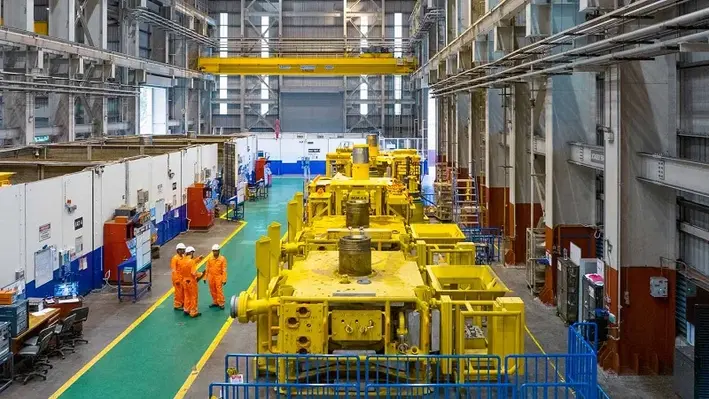

SLB, a global technology company, has announced the award of a contract by TotalEnergies to SLB OneSubsea, a joint venture between SLB, Aker Solutions and Subsea7. The project includes a 13-well subsea production system scope, including associated equipment and services, in the development of the Kaminho project, offshore Angola.
TotalEnergies will work with SLB OneSubsea to deliver a sustainable project that will improve production in Angola. During the Kaminho project’s first phase of development for the Cameia field, SLB OneSubsea will collaborate with TotalEnergies to deploy a highly configurable subsea production platform with standardised vertical monobore subsea tree, wellhead, and controls system.
“We are excited for this opportunity to unlock the large potential of the Kaminho project together with TotalEnergies,” commented Mads Hjelmeland, CEO of SLB OneSubsea. “Our collaborative contract model enables us to leverage both standardisation and highly configurable subsea production platforms, creating greater efficiencies and long-term value for this and future projects in Angola and around the world.”
The Kaminho project overall will involve more than 10 million man-hours in Angola, mainly with offshore operations and construction at local yards. SLB OneSubsea will play a significant role in supporting the Kaminho project locally in Angola for offshore operations including assembly, manufacturing of modules, installation, commissioning, and life-of-field services.
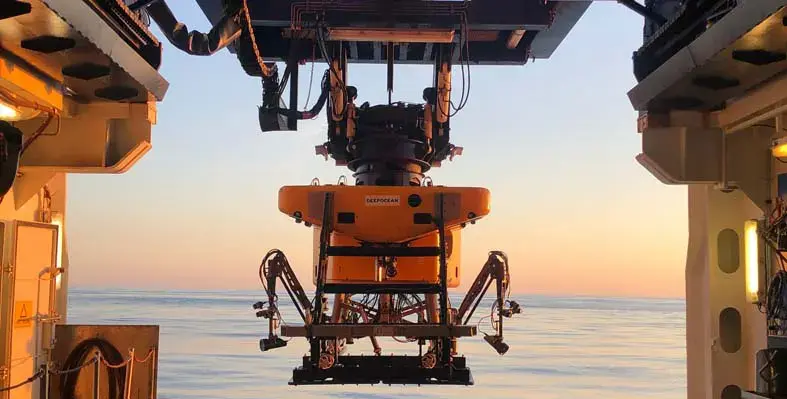
 Driven by a framework agreement signed with Woodside Energy (Senegal) BV, ocean services provider DeepOcean will be supervising subsea inspection, maintenance, and repair (IMR) services for the Sangomar field offshore Senegal, West Africa
Driven by a framework agreement signed with Woodside Energy (Senegal) BV, ocean services provider DeepOcean will be supervising subsea inspection, maintenance, and repair (IMR) services for the Sangomar field offshore Senegal, West Africa
“We have extensive experience from similar IMR operations offshore West Africa, but this is our first project offshore Senegal and with Woodside. We look forward to being Woodside’s subsea IMR supplier here over the coming years and to demonstrate our competence and extensive pool of specialist subsea tools and underwater assets,” said Øyvind Mikaelsen, CEO of DeepOcean.
Driven by 24 subsea wells and associated subsea systems that comprises of wellheads and subsea trees, in-line tees, manifolds, flowlines and risers, flowline-end terminals, and umbilicals, the project demands long-drawn services from DeepOcean. Its scope of work will include project management, engineering, and execution of subsea services such as inspection, survey, intervention, and maintenance, as well as additional services such as underwater inspection of FPSO (UWILD) and standalone ROV operations. The Norway-based provider will be supported by a Senegalese service company called Teranga Oil and Gas Services SARL.
“Sangomar is a large and impressive field development, with extensive subsea infrastructure. Our aim is always to inspect and maintain it as effectively as possible, thereby keeping costs and operational disturbances to a minimum for Woodside,” said Mikaelsen.
A project of strategic importance, the Sangomar oil field is supported by investments from the Africa Finance Corporation.
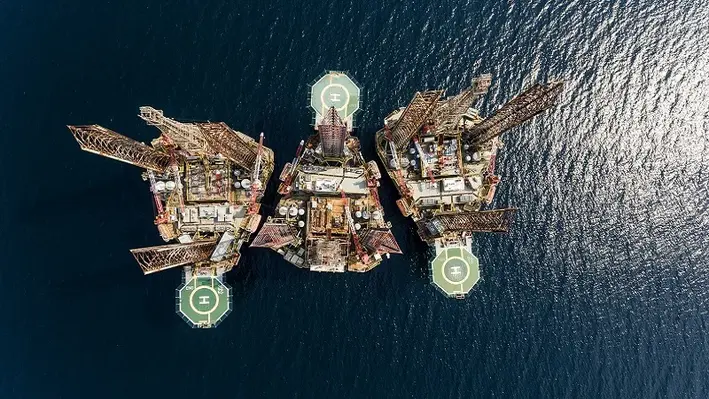

SLB, a global technology leader in the energy sector, has marked 55 years of operations in Angola where it played a vital role in supporting and developing the country’s energy landscape.
The milestone was celebrated at a grand gala event in Launda where distinguished guests were in attendance. This included Angola’s Secretary of State for Petroleum and Gas, H.E. José Alexandre Barroso, who took the opportunity to applaud SLB for its longstanding collaboration and support towards the country’s socio-economic development.
By leveraging its global footprint and extensive experience and providing its advanced technology solutions, the company has helped the country to optimise its oil and gas production. This has been vital to its continued development as oil and gas currently represents 96% of the country’s exports. At the present time, therefore, ensuring that energy production remains at a low-cost and as clean as possible has been described as vital for the nation’s future, and SLB remains committed to this end and driving energy innovation for a lower-carbon future aligned with these needs.
“55 years ago we took our first steps in Soyo-Zaire with the first log for Petrofina,” commented SLB managing director, Central, East and Southern Africa – Miguel Baptista. “Today, we have grown our foundation in Angola based on our core values of people, technology and performance. We have built on this by growing partnerships, igniting capacity and increasing local spend; providing opportunities to local businesses, investing in infrastructure and growing our revenue contribution. We will remain steadfast in the next 55 years and more to come; combining our expertise, resources, and vision, to make significant strides in shaping a sustainable energy future for Angola.”
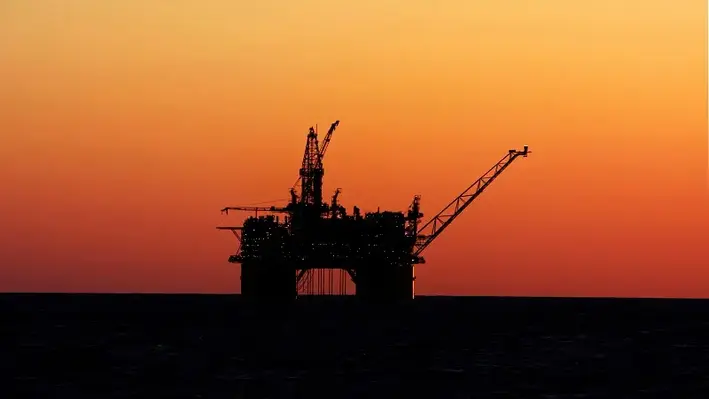
 It is not long now until the doors are set to open once again on West Africa’s leading well intervention conference, offering exclusive access to operator best practices, innovative technologies, exploration strategies and more.
It is not long now until the doors are set to open once again on West Africa’s leading well intervention conference, offering exclusive access to operator best practices, innovative technologies, exploration strategies and more.
This year’s instalment of the OWI WA 2024 conference will return on 28-29 May in the brand new location of Lagos, Nigeria, in the Sheraton Lagos Hotel. With the focus this year predominantly honing in on the combination of innovative well intervention technologies with strategic planning practices in order to optimise the performance of the ageing assets within the region, this event once again unties West Africa’s offshore community as they come together in a series of unique networking opportunities.
Featuring more than 30 expert speakers, 10 technology demos, and two technical breakout workshops, the conference promises to be an insightful and lucrative experience for all attendees. More than 200 decision makers are expected to attend, partaking in six dedicated networking events and engaging in a series of sessions covering key topics such as regional analysis, mature and ageing assets, strategic planning and management, and production optimisation.
This year, OWI WA 2024 has partnered with Women in Energy Network, an association dedicated to providing a platform for women who work across the entire energy industry chain in order to build confidence and enhance their professional progress.
For more information regarding OWI WA 2024, the full brochure can be downloaded here. For any additional enquiries please contact Jack Heffernan at
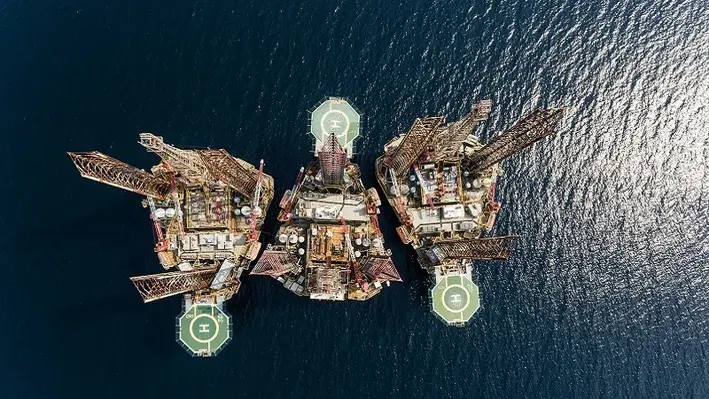
 Silverwell Technology, a global developer of digitally intelligent gas lift production optimisation systems and services, has celebrated a step forward in permeating the African market after securing a contract from a major operator offshore Nigeria.
Silverwell Technology, a global developer of digitally intelligent gas lift production optimisation systems and services, has celebrated a step forward in permeating the African market after securing a contract from a major operator offshore Nigeria.
The contract will see Silverwell bring its digitally intelligent artificial lift (DIAL) gas lift production optimisation system to the country. This system integrated in-well monitoring and control of gas-lift well performance with surface analytics and automation to continually optimise production, remotely and without well intervention. This is expected to bring significant benefits to the operator with DIAL reportedly enhancing the net present value (NPV) of each well by up to US$50mn over their lifetime.
According to Silverwell, DIAL is used by operators around the world for onshore and offshore applications. Currently, it is being installed in shallow water oil wells in the Gulf of Guinea and is operated from an unmanned production platform.
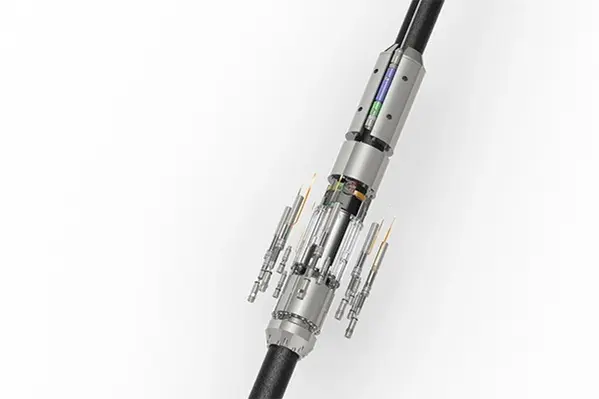
“The key driver for the operator was the OPEX saving related to well intervention and the associated logistical cost. The DIAL system also enables the ability to ensure continuous and remote well monitoring and production optimization,” remarked Stephen Faux, General Manager of Operations for the Eastern Hemisphere. “Conventional gas lift systems would require identification of the optimisation issue, data analysis, vessel mobilisation, and ceasing production to perform well intervention to change the gas lift valve(s).
“This process, from start to finish, can take several months and incurs significant financial impact. With DIAL, all data is delivered in real time to the engineer’s desk allowing them to perform analysis, identify uplift opportunities, and make changes to the configuration without visiting the platform. Petroleum engineers can improve production uplift in minutes.”
Silverwell noted that with the system cutting well lifecycle costs by eliminating well intervention, avoiding deferred production and substantially reducing logistics expenditure, it could bring significant benefits to West Africa. And, in doing so, the company expects this contract to lead to further adoption of DIAL in West Africa and across the continent.
Darrell Johnson, Silverwell CEO, said, “Entering the African market and successfully delivering our first project there is a major milestone for Silverwell, as recognition of DIAL’s benefits to operators continues to gather momentum globally.
“Opening up this latest frontier for our industry-leading technology provides a platform for further expansion in West Africa and the wider continent. We see significant potential for DIAL in Africa and elsewhere. From North America to the Middle East, Asia Pacific, and now Africa, demand for a proven method to reduce operational expenditure while maximizing asset productivity is growing. We’re excited for the next steps in DIAL’s journey toward adoption by operators in every region.”
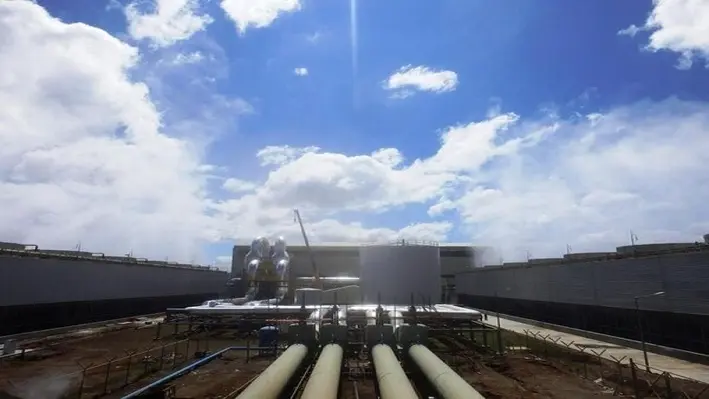
 Toshiba Energy Systems & Solutions Corporation (Toshiba ESS) will be supplying SEPCOIII Electric Power Construction Co., Ltd. with steam turbines and generators for the geothermal power plant equipment renovation of Units 1 through 3 at the 45MW Olkaria I geothermal power plant in Kenya.
Toshiba Energy Systems & Solutions Corporation (Toshiba ESS) will be supplying SEPCOIII Electric Power Construction Co., Ltd. with steam turbines and generators for the geothermal power plant equipment renovation of Units 1 through 3 at the 45MW Olkaria I geothermal power plant in Kenya.
The equipment will be shipped to the site by December 2025.
Said to be the oldest geothermal power plant in Kenya, Olkaria I has been in commercial operation by the Kenya Electricity Generating Company PLC (KenGen) since 1981.
The installation of the new steam turbines and generators will allow the units to achieve higher outputs with less steam, as each of them will increase considerably from 15MW to 21MW each. This will make a huge difference in meeting Kenya's growing demand for power. The development aligns with the Kenya Government's Vision 2030, which aims to boost the country's electricity generating capacity from renewable sources. Many new geothermal power plants are planned to tap into the 9GW geothermal potential in Kenya's Great Rift Valley region.
Toshiba ESS and KenGen are working closely since 2022 in providing operation and maintenance (O&M) services for geothermal power plants, and have plans to expand their service to developing countries beyond Kenya.
Shinya Fujitsuka, Director and Vice President of the Power Systems Division at Toshiba ESS, said, "I'm pleased that we can contribute to energy stability in Kenya by providing our equipment and services. Toshiba ESS will continue to provide optimal products and solutions to meet customer needs through its lineup of small to large geothermal steam turbines and generators with power outputs ranging from 1 MW to 200 MW. Aiming for the further clean energy indispensable for the realization of a sustainable society, we will contribute to the realization of a carbon neutral society by providing geothermal power plant services both in Japan and overseas."
Page 2 of 8
Copyright © 2025 Offshore Network